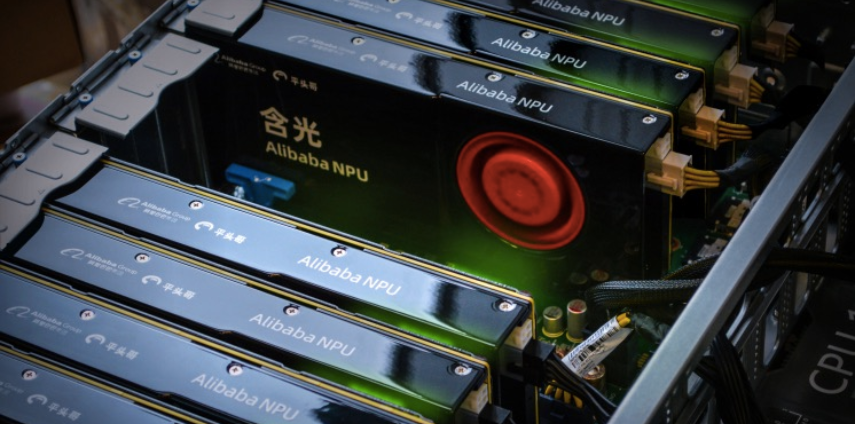Alibaba announces super-powered AI chip

Alibaba has unveiled its first self-developed artificial intelligence chip, boosting China’s drive towards home-grown AI solutions and superior cloud infrastructure services
The neural processing unit (NPU), named Hanguang 800, can supercharge computing tasks, cutting processing times down from one hour to just five minutes.
The Chinese e-commerce giant is already using it within the business, powering product searches, personalised recommendations, automatic translations and “intelligent customer services.”
In a press release, Alibaba CTO Jeff Zhang said: “The launch of Hanguang 800 is an important step in our pursuit of next-generation technologies, boosting computing capabilities that will drive both our current and emerging businesses while improving energy-efficiency.”
The chip was developed by a research institute launched in 2017, DAMO Academy, who work alongside Alibaba’s own semiconductor division, T-Head. The company’s self-reliance is growing, as it looks to move away from foreign, dominant computing architectures, which often carry licensing fees in order to use.
China’s technology industry as a whole looks inward for solutions in a country-wide push to cut reliance on foreign imports. This move by Alibaba signals a streamlining of the supply chain, ensuring that the ongoing trade war with the USA will not dent or diminish China’s progress towards its Made in China 2025 roadmap.

The initiative, announced in 2015, aims at making the nation a manufacturing superpower and is filled with plans and policies for innovation-driven development.
Alibaba has made no plans to release Hanguang 800 to the consumer market.